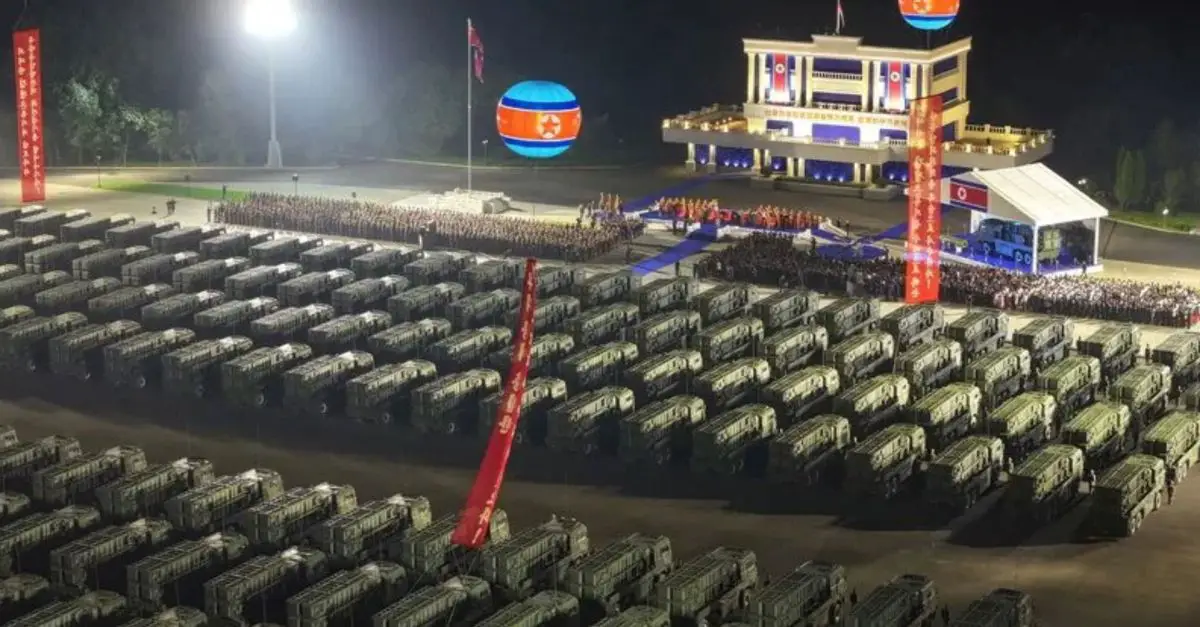Breaking News
North Korean new missile launchers able to target deep into South..
The ballistic missile launchers that North Korea has announced it will deploy at the border with South Korea are said to have a range of 110 km, which would allow them to target the Chungcheong province south of Seoul, reported the Yonhap news agenc, South Korean news agency.
Follow Army Recognition on Google News at this link

North Korean leader Kim Jong Un attends a ceremonial event to mark the delivery of new tactical ballistic missiles to his country's troops. (Picture source: KCNA)
North Korean state media reported earlier this month that leader Kim Jong Un had overseen the delivery of 250 new tactical ballistic missile launchers described as modern tactical weapons personally designed by Kim to be deployed to the border.
Experts believe Pyongyang could use them to attack or threaten Seoul. However, South Korean intelligence officials are skeptical about North Korea's ability to supply enough missiles for the 250 launchers while also providing weapons to Russia as part of their bilateral military cooperation, Yonhap reported on Monday, citing lawmakers from the intelligence committee.
The missile and these launchers are the cornerstone of North Korea's defense policy. Having been under embargo since the 1950s, Pyongyang has experienced significant delays in modernizing its military. Even today, North Korea’s active forces are largely equipped with light weapons from the 1960s, such as the Kalashnikovs, Type 98, and Type 68 rifles that are locally produced copies.
However, the North Korean arms industry is not focused on light weapons but on advanced defense technologies such as nuclear and missile technology. Whether in armored vehicles or aircraft, there are few recent examples, but the armed forces are still equipped with T-55, T-54 tanks, and to a lesser extent, T-72 tanks, sometimes sourced from Russia or China.
The launchers and aerial vectors are more interesting to Pyongyang as they allow for deep strikes and offer a degree of deterrence. This is essential for the Pyongyang regime, which must ensure its survival. Unable to directly compete with a more modern army, North Korea prioritizes deep strike capabilities. As a result, the arms trade with Russia has resumed, similar to the arrangement with Libya between 1960 and 2011.
North Korea and Russia have been accused by Seoul and Washington of engaging in arms exchanges to help Russia replenish its missile and artillery stocks for its war against Ukraine. Pyongyang and Moscow have denied these accusations, but today, Western and Russian sources on the front lines mention artillery munitions delivered by Pyongyang, with only the mystery of the missiles remaining.

























